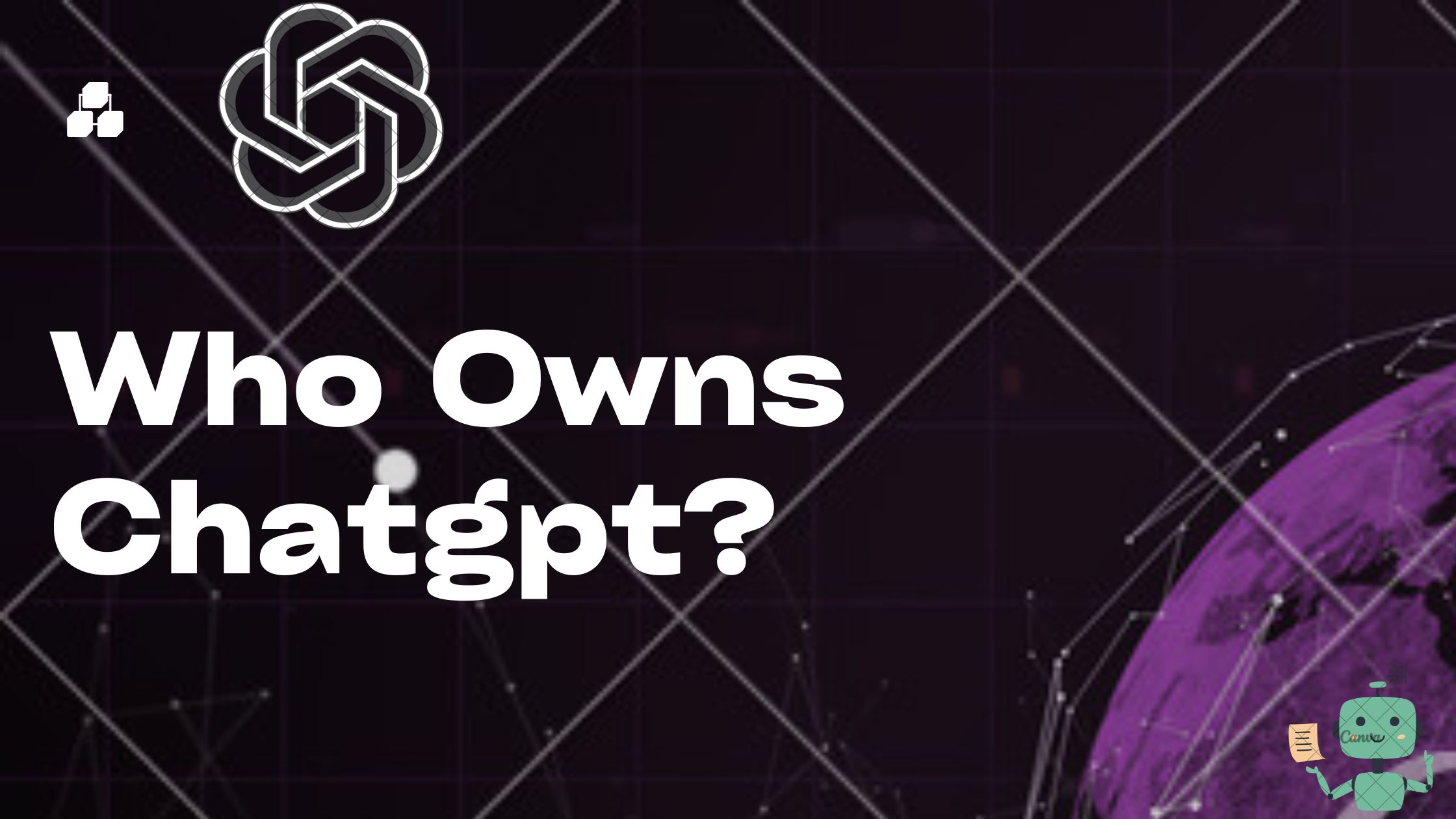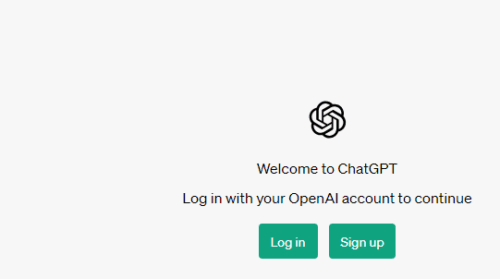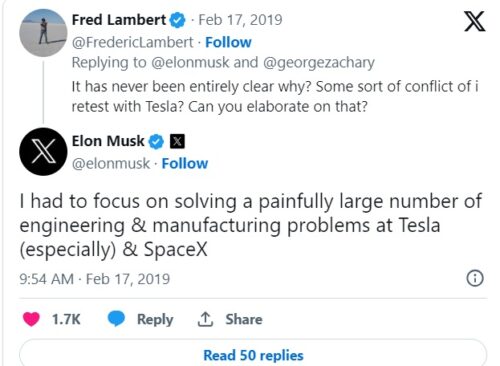Who Owns ChatGPT: A Tale of Innovation and Controversy 2023
Introduction:
In its brief but impactful history, ChatGPT has sent shockwaves through the tech industry, captivating a staggering user base of 100 million. It is a chatbot with an uncanny ability to converse in a remarkably human-like fashion, navigating the intricacies of humor and conversational nuances, effectively pushing the boundaries of artificial intelligence, and distinguishing itself from its peers.
Amidst fierce competition from emerging alternatives like Google Bard, the chatbot’s popularity continues to ascend, promising an even brighter future. But delve deeper into the enigma, and you’ll find questions that linger: Who wields the reins of ChatGPT? How did it journey to its present eminence? And what role does billionaire tycoon and serial CEO, Elon Musk, play in this remarkable narrative? We embark on an exploration, unearthing answers and uncovering more questions along the way.
Who Claims Ownership of ChatGPT? Who Owns ChatGPT?
ChatGPT finds its home within the confines of OpenAI, an AI research laboratory birthed in 2015 by the visionary trio of Sam Altman, Elon Musk, and a constellation of luminaries including Peter Thiel, Ilya Sutskever, Jessica Livingston, Reid Hoffman, Greg Brockman, Wojciech Zaremba, and John Schulman.
At the helm of OpenAI stands Sam Altman, the current CEO, and the linchpin behind ChatGPT’s meteoric rise.
Who Owns Chatgpt
Who Owns ChatGPT
OpenAI’s Odyssey: From Games to General AI
OpenAI, a Silicon Valley-based entity, embarked on its journey by crafting artificial intelligence for video games and various applications. However, the company’s evolutionary path led it to pivot towards the realm of general AI research and development. In 2018, it unveiled the pioneering Chat Generative Pre-Trained Transformer (GPT), a groundbreaking language model utilizing deep learning to craft human-like text. Subsequently, it birthed even more advanced iterations: GPT-2, GPT-3, and the trailblazing GPT-4.
OpenAI’s contributions extend beyond text generation. DALL-E, an ingenious AI system, weaves realistic images from textual prompts, while Whisper, a speech recognition marvel, adeptly transcribes, identifies, and translates 99 languages.
The Enigmatic Elon Musk: A Founder with a Twist
Elon Musk, a co-founder of ChatGPT and a pivotal financier in OpenAI’s embryonic years may not possess current stakes in the venture.
In 2018, Musk formally severed his ties with OpenAI’s Board of Directors. In a 2019 tweet, he attributed this move to conflicts of interest and the prioritization of his other juggernauts, SpaceX and Tesla.
However, the saga might harbor hidden complexities. Whispers from anonymous insiders intimate that Musk, recognizing OpenAI’s perceived lag behind Google, once sought to wrest control of the enterprise. Alas, his overtures were unequivocally rebuffed by co-founder Greg Brockman and CEO Sam Altman.
Following this rejection, Musk distanced himself from OpenAI, renouncing all financial affiliations despite an earlier commitment to contribute a staggering $1 billion over multiple years. To recuperate these losses, OpenAI adopted a “capped” for-profit model, which coexists with its non-profit facet to this day.
Intriguingly, in light of ChatGPT’s resounding success, Musk’s stance on AI remains steadfast. Earlier this year, he joined forces with tech luminaries, including Apple’s co-founder Steve Wozniak, in penning an open letter that voiced concerns about the rapid advancement of AI, particularly GPT-4, the driving force behind ChatGPT.
Yet, in a curious twist, Musk divulged his ambitions for TruthGPT, his own alternative to the AI chatbot. TruthGPT aspires to be the ultimate “truth-seeking AI,” poised to challenge OpenAI’s “biased responses” and “politically correct” language models.
Musk has also critiqued OpenAI’s cozy rapport with Microsoft, alleging that the AI research lab is “effectively controlled” by the software behemoth. But how much of this narrative aligns with reality?
Who Owns Chatgpt
Who Owns ChatGPT
Microsoft’s Stake in the Game: An Indirect Influence
While Microsoft does not lay claim to ChatGPT or its parent company OpenAI, it does maintain a substantial commercial partnership with the latter.
In 2016, Microsoft and OpenAI forged an exclusive alliance, deepening their collaboration. The tech giant further solidified its commitment by injecting $1 billion into OpenAI in 2019. Their partnership entered a new phase this January, with Microsoft infusing an additional $10 billion into the venture.
The motivation behind OpenAI’s partnership is evident, but Microsoft, too, stands to gain considerably. By investing in OpenAI, Microsoft secures access to cutting-edge AI technology, which it seamlessly integrates across its expansive array of products and services.
These substantial investments are bearing fruit. Business Insider reports a projected 27% surge in Microsoft Azure’s revenue for the upcoming quarter, with 1% of this growth attributed to AI services.
Frequently Asked Questions (FAQs)
- Who is the CEO of OpenAI? Sam Altman holds the mantle of CEO at OpenAI. Notably, Altman is also a co-founder of the AI research lab, sharing this distinction with luminaries such as Elon Musk, Greg Brockman, Ilya Sutskever, and John Schulman.
- Can I Purchase Shares in ChatGPT? OpenAI is not a publicly traded entity, rendering it inaccessible to prospective investors seeking shares in the company or its flagship product, ChatGPT.
- Is ChatGPT a Private Company? ChatGPT finds its home under the umbrella of OpenAI, an artificial intelligence research laboratory.
- What Are the Key Milestones of OpenAI’s Research? OpenAI’s journey is marked by significant milestones, including the inception of the Chat Generative Pre-Trained Transformer (GPT) in 2018, followed by the development of more advanced models like GPT-2, GPT-3, and GPT-4. The lab also introduced groundbreaking AI systems like DALL-E and Whisper for image generation and speech recognition, respectively.
- How Has Elon Musk’s Involvement Evolved Over Time? Elon Musk, a co-founder and early backer of OpenAI, stepped back from its Board of Directors in 2018, citing conflicts of interest. Despite initially committing $1 billion in funding, he distanced himself from the company. However, Musk’s continued interest in AI and the launch of TruthGPT indicate his ongoing engagement in the field.
- What Is the Significance of Microsoft’s Partnership with OpenAI? Microsoft and OpenAI entered into a commercial partnership in 2016, with Microsoft investing $1 billion in 2019 and an additional $10 billion in 2023. This collaboration allows Microsoft to leverage OpenAI’s cutting-edge AI technology across its product portfolio, contributing to the growth of Microsoft Azure’s revenue.
- How Has ChatGPT Impacted the AI Landscape? ChatGPT’s unprecedented success has redefined the AI landscape, setting new standards for natural language processing and human-like conversational AI. Its influence extends to various sectors, from customer support to content generation.
- What Are the Ethical and Societal Implications of AI Advancements? As AI models like GPT-4 gain prominence, concerns about bias, privacy, and the societal impact of AI technologies have intensified. Elon Musk and others have raised alarm bells, sparking discussions about responsible AI development and deployment.
- Is There a Roadmap for ChatGPT’s Future Development? OpenAI continues to refine and expand ChatGPT, with a focus on addressing limitations and enhancing its capabilities. The roadmap may involve mitigating biases, improving content generation, and expanding its range of applications.
Read our other blogs


